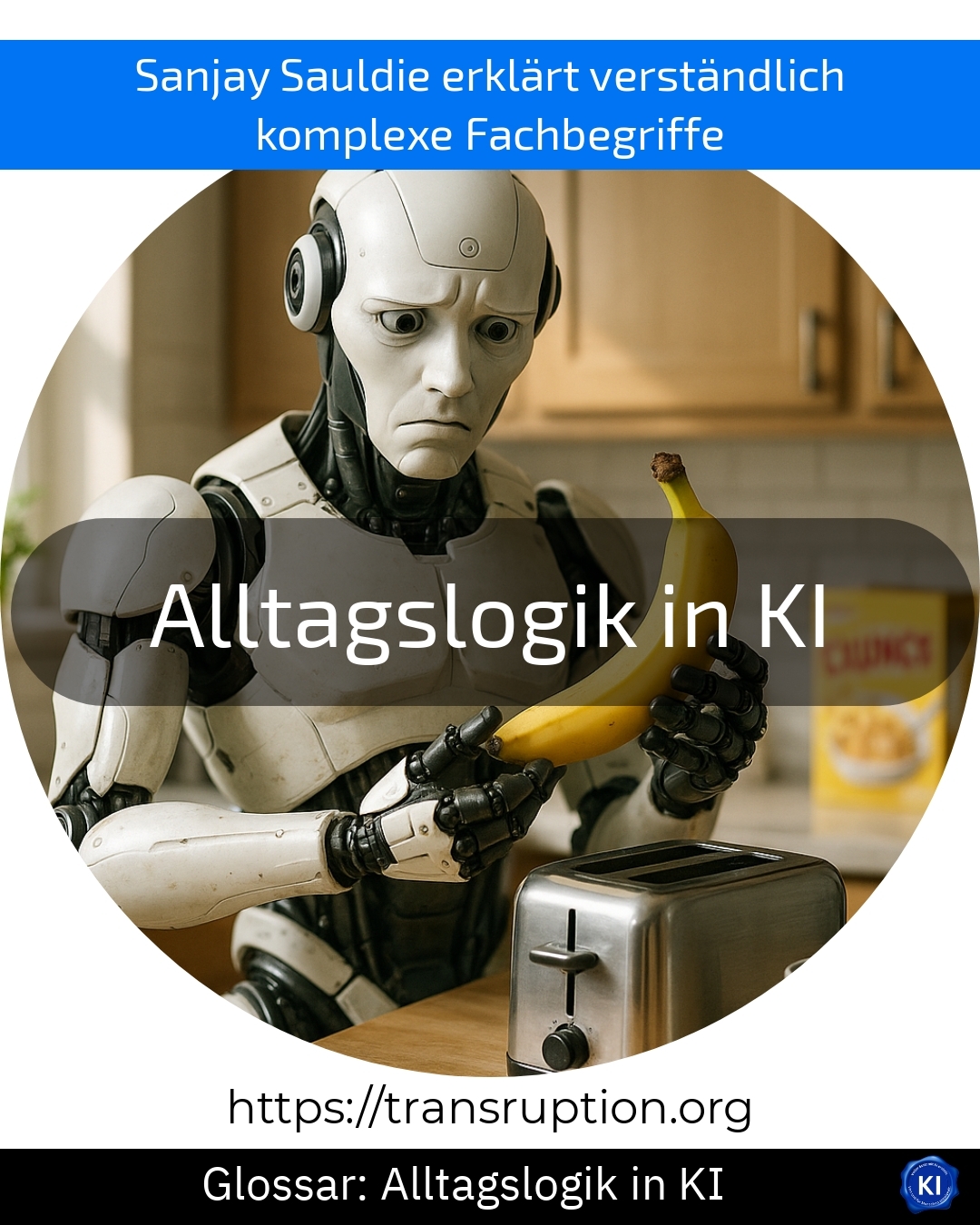Everyday logic in AI is primarily used in the areas of artificial intelligence, digital society and automation. This means that artificial intelligence (AI) works not only with in-depth expert knowledge, but also with the common sense that we encounter in everyday life. Everyday logic helps systems to understand and explain everyday situations in the same way as a human would.
For example, a smart voice assistant recognises the difference between "Please switch off the light" and "I need more light" - it uses everyday logic to work out that in the first case the light should be switched off and in the second case it should be made brighter. Without this everyday logic in AI, misunderstandings could arise because the AI does not understand the meaning behind our simple words.
The technology behind it ensures that computers, robots or digital assistants imitate human thinking in everyday life. This saves time, particularly in automation or customer service, and makes the use of artificial intelligence easier and safer for us. Search engines also benefit because they can provide better answers to everyday questions thanks to everyday logic.















